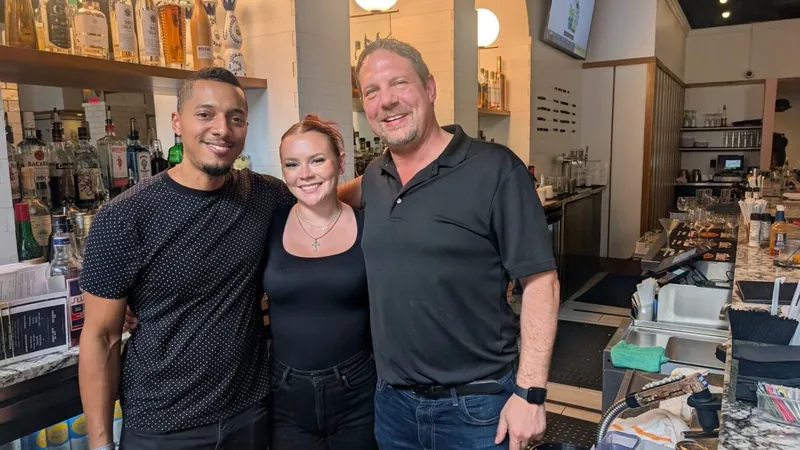
Breakfast with ChatGPT: A New Perspective on AI from Cleveland
2025-08-10
Author: Ming
During my recent trip to the National Association of Black Journalists (NABJ) convention in Cleveland, Ohio, I anticipated dynamic discussions about the implications of artificial intelligence. Instead, the atmosphere was thick with apprehension, with many journalists expressing fears about AI as an imminent threat to their livelihoods.
However, my perspective shifted drastically after a simple breakfast conversation at the hotel restaurant, Betts. Curiosity led me to speak with my waiter, Kevin Knestrick, about his experiences with AI.
A Surprising Encounter
Initially hesitant, Kevin revealed that he had used AI to help revamp the restaurant's menu. By uploading a picture to ChatGPT and asking it to generate text for a colleague, he discovered just how much time AI could save. His cautious attitude transformed once he introduced me to his younger colleagues, Jamie Sargent and Dawud Hamzah, both of whom embraced AI as an integral part of their daily routines.
Empowering the Workforce
For Dawud, a bartender and youth motivational speaker, ChatGPT has replaced traditional tools like Google. "I use it to create polished PowerPoint presentations for my talks with students," he explained. ChatGPT even helped him plan a romantic birthday surprise for his girlfriend, complete with vegan-friendly options. Moreover, when faced with back pain, he turned to the AI for a tailored fitness regimen, which proved effective.
Jamie, a former special education teacher, has been utilizing ChatGPT since its release in 2022. He leveraged it to develop lesson plans quickly, allowing him to dedicate more time to individualizing content for his students. He views the AI as a time-saving ally, not a cheat, stating, "It just does it faster than I can." Like Dawud, he's also an avid travel planner, utilizing AI to organize detailed itineraries for trips across Italy.
A Cautious Yet Curious Acceptance
On the other hand, Kevin represents a more conservative approach to AI adoption, prompted by necessity rather than curiosity. After his initial experience with ChatGPT, he became more receptive to exploring its potential for problem-solving. He reflected on missed opportunities in past technological booms, lamenting, "How do we not be the little guy anymore?"
Likewise, Curtis Helser, their manager, embraces AI as a useful tool for refining communication in the workplace. Rather than fearing for his job security, he finds comfort in the fact that human interpersonal skills cannot be replicated by machines.
A Stark Contrast in Perspectives
This encounter shifted my understanding of AI’s role in professional environments. While journalists at the convention viewed AI as a dire threat, I found that in this restaurant setting, it functioned as a helpful assistant, seamlessly integrating into various workflows.
The generational divide in attitudes was evident: younger employees were eager adopters, while older staff exhibited caution yet a willingness to adapt. This stark contrast became clear to me: perhaps those whose careers revolve around information creation perceive AI as a competitor, while those in service industries see it as an enhancement to daily tasks.
Ultimately, the real AI revolution is not merely framed in frantic headlines or convention halls but unfolds quietly in everyday conversations, addressing practical problems one interaction at a time.




 Brasil (PT)
Brasil (PT)
 Canada (EN)
Canada (EN)
 Chile (ES)
Chile (ES)
 Česko (CS)
Česko (CS)
 대한민국 (KO)
대한민국 (KO)
 España (ES)
España (ES)
 France (FR)
France (FR)
 Hong Kong (EN)
Hong Kong (EN)
 Italia (IT)
Italia (IT)
 日本 (JA)
日本 (JA)
 Magyarország (HU)
Magyarország (HU)
 Norge (NO)
Norge (NO)
 Polska (PL)
Polska (PL)
 Schweiz (DE)
Schweiz (DE)
 Singapore (EN)
Singapore (EN)
 Sverige (SV)
Sverige (SV)
 Suomi (FI)
Suomi (FI)
 Türkiye (TR)
Türkiye (TR)
 الإمارات العربية المتحدة (AR)
الإمارات العربية المتحدة (AR)